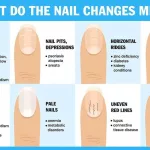Can I be honest with you for a second? Sometimes, the little things we notice in our kids—the quirks, the missed eye contact, the way they line up their toys just so—can get buried under a mountain of “Oh, that’s probably nothing.” Until, one day, it isn’t nothing anymore. Maybe you’re here because you’ve started asking questions you never thought you’d ask: Why? How? Is there something I missed? And most importantly… what can I do?
First things first: Take a deep breath. You are not alone in this, not for a single second. If you’re searching for where to get genetic testing for autism, or just trying to untangle the whole maze of genetic screening, costs, and what it all means for your family, you’re already showing up in the bravest way possible. Let’s walk through this together—no lab coats, no lecture halls, just real talk about real options, real worries, and real hope.
What Is Genetic Testing for Autism, Really?
Let’s start by clearing up a huge myth: There’s no single “autism gene.” I know, wouldn’t that make things so much simpler? But what genetic testing for autism can do is look for changes in your (or your child’s) DNA that might help explain the “why” behind an autism diagnosis. It’s not about labeling or blaming—it’s about understanding, planning, and maybe, just maybe, lifting a little of that uncertainty off your shoulders.
So, what actually happens? Usually, the process is pretty straightforward. A doctor or specialist might order a blood test for autism gene changes, or sometimes a cheek swab. The most common tests are things called chromosomal microarray or exome sequencing. Don’t let the jargon trip you up—basically, these tests are scanning for missing or extra pieces of genetic material, or looking for changes in genes known to be involved in brain development.
Think of it like a high-powered magnifying glass for your DNA. And if you’re wondering, “Is genetic screening for autism only for kids who already have a diagnosis?”—the answer is no. Sometimes, parents consider genetic testing for autism before pregnancy, especially if there’s a family history or just a nagging feeling that more information would help them plan for the future.
What Can Genetic Testing Reveal About Autism?
Let’s get real: genetic testing isn’t a crystal ball. It won’t tell you everything, and sometimes it won’t tell you anything at all. (Yeah, that can be frustrating.) But here’s what it can do:
- Offer answers about why autism happened in your family (sometimes).
- Flag related health conditions that doctors should watch out for—some genetic changes can affect things like heart, kidneys, or growth.
- Guide family planning if you’re thinking about more kids. Knowing about certain genetic changes can help you make informed decisions.
But—big but—it doesn’t always give a tidy answer. Sometimes the results come back “variant of unknown significance,” which basically means: “We see something, but we don’t know what it means yet.” It’s a lot like getting a letter in a language you don’t speak… yet. Science is still catching up, but every test adds to what we know.
Real Stories: When Testing Brings Clarity (Or Not)
I remember chatting with a mom, Sarah, whose son was diagnosed with autism at three. She went for genetic testing, hoping for answers. The test found a rare genetic change linked to autism—she said it was like turning on a light in a dark room. For her, it helped with guilt (“Did I do something wrong?”) and gave her doctor a heads-up about other things to watch for. But I’ve also heard from parents who got a giant “we’re not sure” from their child’s test. That’s tough, and it’s okay to feel disappointed or even more confused.
Where to Get Genetic Testing for Autism
Okay, so here’s the million-dollar question: where do you even start? The good news is, you have options. You don’t need to trek across the country or know someone “on the inside.” Most families begin this journey in one of three places:
Types of Providers
- Hospitals & Specialized Clinics: Many children’s hospitals and academic medical centers have genetics departments or autism centers. These places are used to helping families navigate the whole process—referrals, paperwork, insurance headaches (ugh), all of it.
- Pediatricians & Developmental Specialists: Your regular doc might be the perfect starting point. If they aren’t sure, they can refer you to a genetic counselor or a specialist.
- Genetic Counselors: These are the unsung heroes of the genetics world. They’ll walk you through the test options, what results actually mean, and help with the emotional side of things too.
How to Start the Process
Let’s break it down, step by step:
- Talk to your pediatrician or family doctor. Bring up your concerns, even if you feel awkward. (Spoiler: they’ve heard it all before.)
- If needed, get a referral to a genetics clinic or counselor. Sometimes you can self-refer, depending on where you live.
- Check with your insurance about coverage (more on that in a minute—don’t let the fine print scare you off).
- Show up for your appointment. Bring any medical records, your family history, and—if you can muster it—a list of your questions. No question is too small or silly.
- The test itself is usually just a blood draw or cheek swab. Quick, not scary, and you get to go home after.
Comparison Table: Where to Get Genetic Testing for Autism
| Provider | Services Offered | Location | Cost Range | Insurance |
|---|---|---|---|---|
| Children’s Hospitals | Full genetic panel, counseling, follow-up | Major cities, regional centers | $$-$$$ | Usually covered |
| Genetics Clinics | Targeted and broad testing, counseling | Urban/suburban areas | $$ | Often covered |
| Pediatricians | Initial screening, referrals | Everywhere | $ | Covered |
| Online Services | Limited panels, no in-person support | Online/At home | $-$$ | Rarely covered |
Online & At-Home Options: Proceed with Caution
Yes, there are direct-to-consumer genetic tests advertised online. They’re easy, and sometimes cheaper, but they don’t offer the same depth or support as clinical testing. And, let’s be honest, reading complex genetic results without a pro by your side can make your head spin. If you go this route, treat it as a first step, not the final word. Always loop in a healthcare provider for anything medical.
Genetic Testing for Autism Before Pregnancy
Thinking about the future? You’re not alone. A lot of couples wonder about genetic testing for autism before pregnancy. Here’s the scoop: while there isn’t a test that predicts autism itself (again, no single “autism gene”), preconception genetic screening can look for related syndromes or conditions that sometimes overlap with autism. This is especially relevant if you or your partner have a family history of developmental differences.
What Is Preconception Genetic Screening?
It’s like doing a “genetic health check” before you try for a baby. A blood test or saliva sample can screen for hundreds of rare genetic conditions, some of which can be associated with autism. But remember, it’s not a guarantee or a crystal ball. It’s just one more tool in your toolkit—useful, but not the only story.
Expert Insights
According to the CDC, most cases of autism are caused by a complex mix of genetic and environmental factors. Preconception screening can help some families, but it’s best to talk to a genetic counselor who can translate the “what ifs” into real, actionable advice for your unique situation.
Understanding the Costs of Genetic Testing for Autism
Let’s be real: healthcare costs are about as clear as mud. So how much does genetic testing for autism cost? The short answer: it varies. The long answer: it really, really varies. I’ve seen bills from $300 to over $5,000, depending on the type of test, where you get it, and your insurance.
How Much Does Genetic Testing for Autism Cost?
- Hospitals and clinics: Usually more expensive, but also more comprehensive.
- Insurance: Many plans cover testing if it’s recommended by a doctor, especially if there’s a clear medical reason. Always call your provider and ask for a “predetermination of benefits.” (Yes, it’s a mouthful, but it can save you sticker shock.)
- State programs: Some states offer free or discounted testing for families who qualify. Don’t be shy about asking your care team what’s available.
Insurance Coverage & Financial Assistance
Tangled in paperwork? You’re not alone. Ask your healthcare provider for help navigating the insurance maze. And don’t forget to check out non-profit organizations that offer grants or financial support for families seeking a diagnosis. Sometimes, a little help is just a phone call or click away.
Weighing the Benefits and Risks
This is where things get real. Genetic testing is powerful, but it’s not all rainbows and answers. Let’s take an honest look at the trade-offs.
Why Consider Genetic Testing?
- Clarity: Sometimes, a test result gives families a “why” that brings comfort and helps with planning—medical, educational, emotional, all of it.
- Medical guidance: If a genetic cause is found, doctors can screen for related health issues early and tailor care.
- Family planning: For some, knowing the risks (even if they’re small or uncertain) helps with big decisions about the future.
What Are the Risks or Downsides?
- Emotional impact: Sometimes, results are ambiguous or bring up more questions than answers. It’s normal to feel a rollercoaster of emotions.
- Privacy: Genetic data is sensitive stuff. Make sure you understand how your information will be used and protected.
- False hope or overpromising: Remember, no test can “predict” autism or guarantee certain outcomes. Anyone who says otherwise is selling snake oil.
Building Trust: Reliable Sources & Next Steps
If you’re ever unsure, check your provider’s credentials or look for organizations like the NIH or Autism Speaks for unbiased info. When in doubt, a second opinion never hurts. You’re the expert on your family—you get to ask as many questions as you need.
The Parent’s Role in Navigating ASD & Genetic Testing
Let’s be honest, this journey isn’t just about tests and results—it’s about you, the parent or caregiver, showing up every day. You are the anchor, the advocate, the champion for your child. And that’s huge.
How Parents Can Advocate for Their Child
- Write down your questions before appointments—no matter how small or “silly” they seem.
- Don’t be afraid to push for referrals or second opinions.
- Remember, you know your child best. Your gut matters.
Seeking Support & Community
No one should have to walk this path alone. There are support groups, online forums, and even local meet-ups for parents going through similar things. Sharing stories can make all the difference—sometimes, just hearing “me too” is enough to get you through a rough day.
Experience-Based Tips
From one parent to another: Be gentle with yourself. This is hard, and you’re doing your best. Celebrate the small wins, ask for help when you need it, and remember, there’s no “right” way to do this. You get to write your family’s story, one step at a time.
In Closing: You’re Not Alone—And There Is Hope
If you’ve made it this far, thank you. Really. Searching for where to get genetic testing for autism is an act of love, of hope, of determination. Whether you’re just starting out or knee-deep in forms and phone calls, you’re part of a community that cares deeply and fights fiercely for answers.
Remember: You don’t have to have all the answers today. Reach out to your doctor, connect with a genetic counselor, and lean on your circle—family, friends, other parents, or even strangers on the same path. You’re not alone, and there’s a whole world out here cheering you on. If you have a story or a question to share, or just need to vent, drop a comment or reach out. We’re listening, and we’re in this together.

























Leave a Reply
You must be logged in to post a comment.